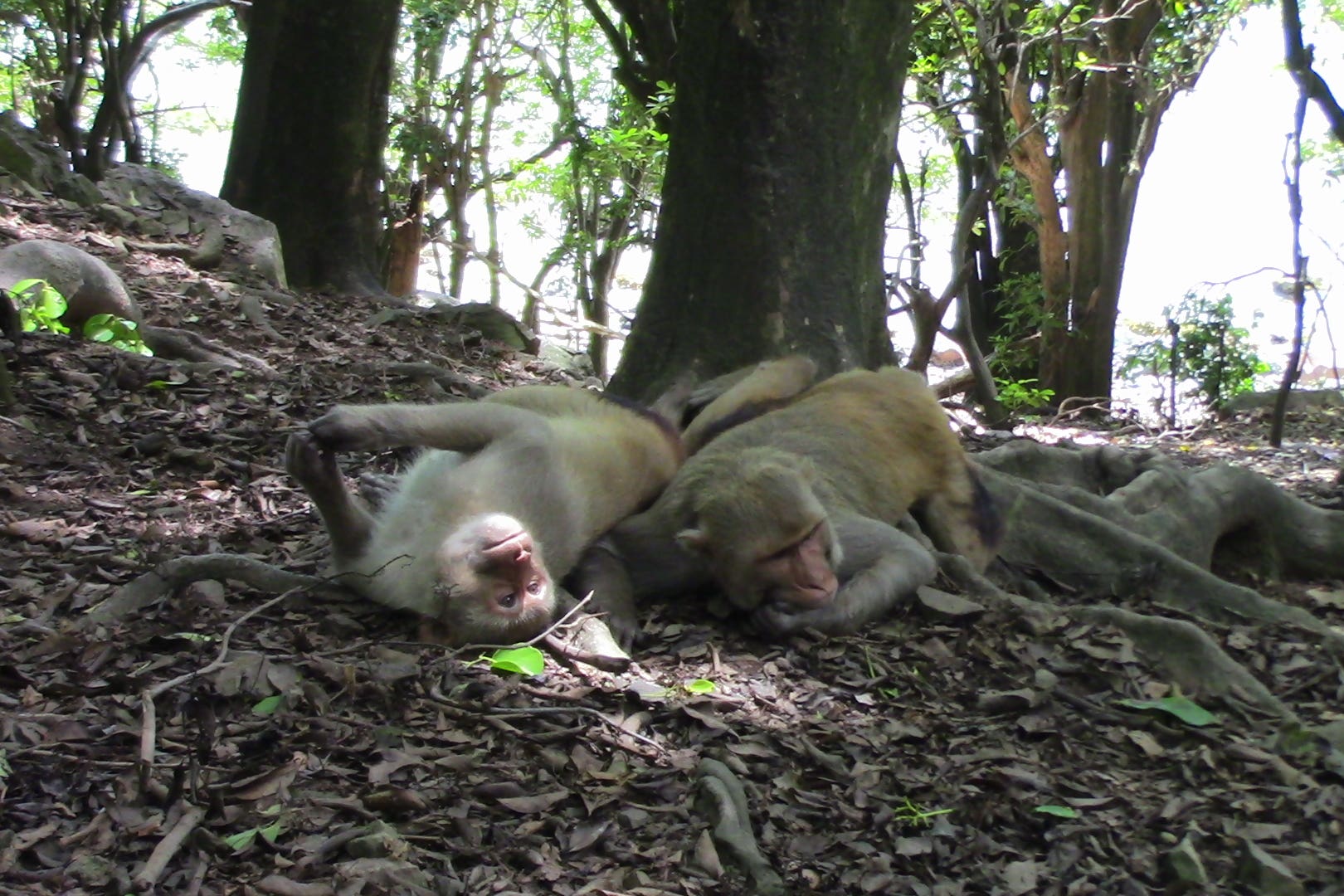Same-sex sexual behaviour is widespread in macaque monkeys, study suggests
Researchers say their findings challenge the beliefs of some that same-sex sexual behaviour is a rare behaviour in non-human animals.

Bisexual behaviour among male monkeys is widespread and may be beneficial to them, new research suggests.
Observations of a wild colony of macaques over three years suggests same-sex sexual (SSB), or homosexual, behaviour has evolved and may be a common feature of primate reproduction.
The Imperial College London researchers say their findings challenge the beliefs of some that SSB is a rare behaviour in non-human animals or solely the product of unusual environmental conditions.
Our research therefore shows that same-sex sexual behaviours can be common amongst animals and can evolve
The researchers also found that males who engaged in SSB had more offspring.
First author Jackson Clive, from the Georgina Mace Centre for the Living Planet at Imperial, said: “We found most males were behaviourally bisexual, and that variation in same-sex activity was heritable.
“This means that the behaviour can have an evolutionary underpinning; for example, we also found that males that mounted each other were also more likely to back each other up in conflicts – perhaps this could be one of many social benefits to same-sex sexual activity.
“Our research therefore shows that same-sex sexual behaviours can be common amongst animals and can evolve.
“I hope our results encourage further discoveries in this area.”
Our research shows that same-sex behaviour is in fact widespread amongst non-human animals
Lead researcher Professor Vincent Savolainen, director of the Georgina Mace Centre for the Living Planet at Imperial, said: “Unfortunately there is still a belief amongst some people that same-sex behaviour is ‘unnatural’, and some countries sadly still enforce the death penalty for homosexuality.
“Our research shows that same-sex behaviour is in fact widespread amongst non-human animals.
“Our mission is to advance scientific understanding of same-sex behaviour, including exploring the benefits it brings to nature and within animal societies.
“Amongst the macaques we looked at in this study, more than two-thirds displayed same-sex behaviour and this behaviour strengthened the bonds within the community.”
The researchers studied 236 males within a colony of 1,700 rhesus macaques living freely on the tropical island of Cayo Santiago, Puerto Rico.
As well as observing their behaviour and conducting genetic analyses, the team had access to pedigree records, which detail parentage of each individual back to 1956.
All social mountings for the 236 males were recorded, both of males-on-males (SSB) and males-on-females (different-sex behaviour, DSB).
Male same-sex mounting was widespread, with 72% of sample males engaged in same-sex mounting, in comparison with 46% for different-sex mounting, the study found.
SSB has been observed in thousands of different animals, ranging from insects to penguins.
Theories for why this happens include ideas about establishing dominance in groups, shortages of different-sex partners, and reducing tension following aggression.
However, there is not a lot of data available to support any theory.
The team investigated several of these theories with their data, finding that, for this colony of macaques, SSB in males was strongly correlated with something called coalitionary bonds.
This means male pairs that regularly engaged in the activity were more likely to back each other up in conflicts, providing them with an advantage in the group.
The researchers also investigated whether SSB led to a reduction in the amount of offspring the animals had.
They found the opposite – males that engaged in SSB may be more successful in reproducing, potentially due to the benefits provided by more coalitionary bonds.
Using the pedigree data, the researchers found SSB in males was 6.4% heritable, which provides the first evidence of a genetic link to primate SSB outside of humans.
The findings, published in the Nature Ecology & Evolution journal, support counter-arguments to the idea that SBB defies nature and evolution – the so-called Darwinian Paradox.
While the researchers caution against direct comparisons to humans, they say their study challenges the beliefs of some that SSB is a rare behaviour in non-human animals or solely the product of unusual environmental conditions.
Bookmark popover
Removed from bookmarks